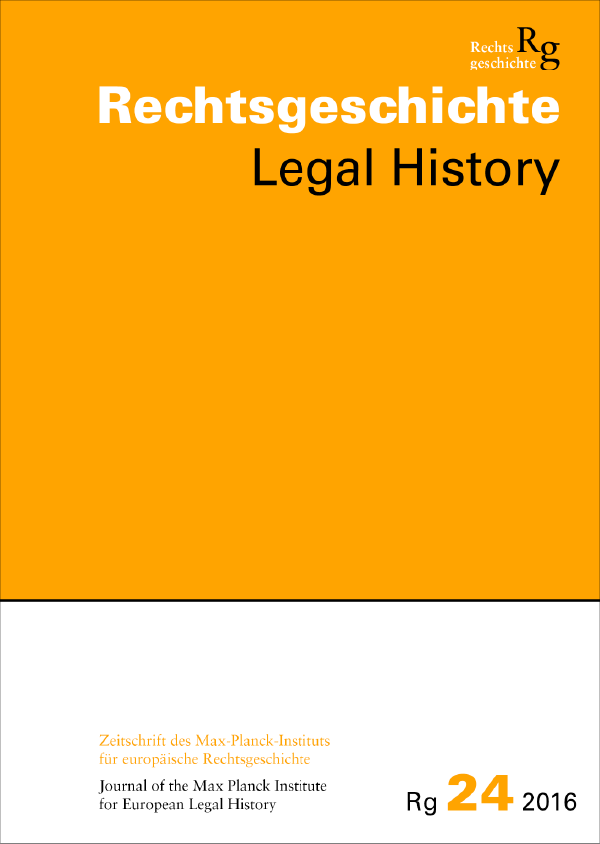Consuetudo Legis: Writing Down Customs in the Roman Empire (2nd–5th Century CE)
DOI:
https://doi.org/10.12946/rg24/244-250Abstract
The terms used to refer to the sources of law are still marked by the influence of Rome: lex and consuetudo. Despite this semantic legacy, it is difficult to know what those terms referred to in the Roman period. Of course, it would be presumptuous to transpose our modern categories and to consider laws as impersonal and general rules issued from sovereign powers, and customs as spontaneously generated uses that have been accepted by the social groups concerned.
Though Roman jurisconsultes did not deal with the theoretical question of custom, the problem of the relationship between laws and customs did occur in the practice of law. Everywhere in the provinces, local rules persisted alongside Roman law, and judges had to reconcile the discrepancies. Obviously, it is impossible to grasp the realities of native laws. When texts mentioned the consuetudines of some cities, those customs were only considered in light of their interactions with Roman law. Legal anthropology has emphasised that the very existence of custom does not simply reflect popular will. Rather, it is linked to a legal order anxious to choose from among local traditions those to be deemed customs. In the Late Empire, customs are mainly visible in administrative matters, and those administrative customs could be part of the very legacy of Rome. Indeed, they helped to shape particular identities.
My paper will promote the view of legal anthropology to understand the role of the custom in Late Antiquity. I focus on the fact that custom can be understood as a privilege (privata lex), especially in the case of the first national laws given to barbarian tribes established in the Late Roman Empire.
Downloads
Veröffentlicht
Zitationsvorschlag
Ausgabe
Rubrik
Lizenz
Copyright (c) 2014 Autor/in

Dieses Werk steht unter einer Creative Commons Namensnennung - Nicht-kommerziell - Keine Bearbeitung 3.0 International -Lizenz.





